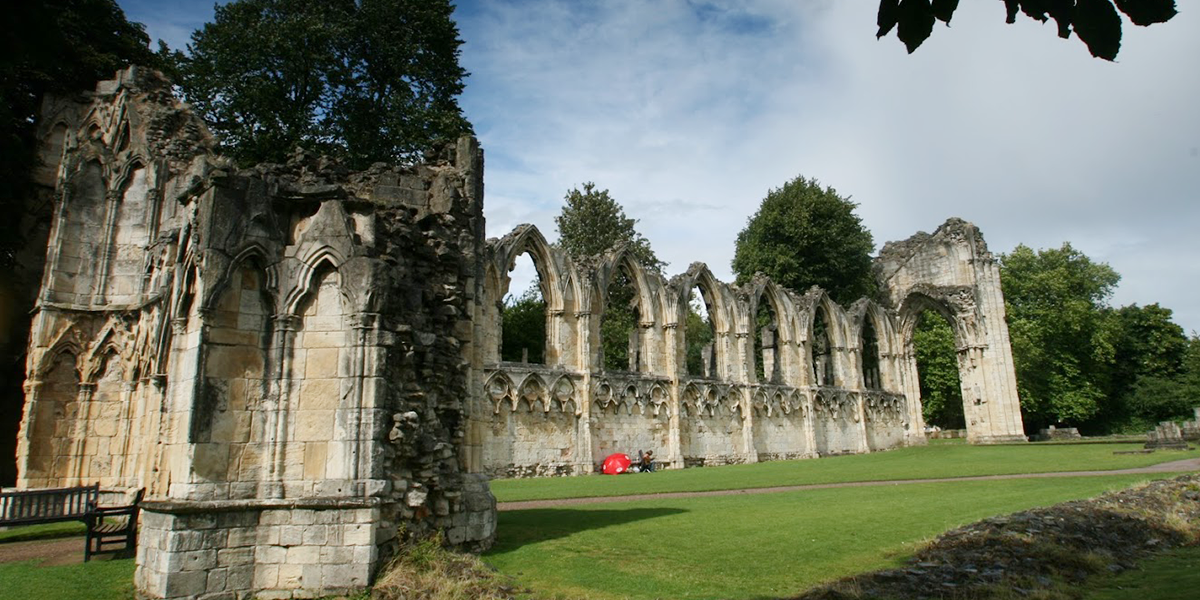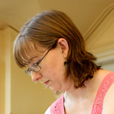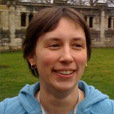View semester dates
2 years part-time,
3 years part-time

Explore the past from the European heartland of medieval archaeology
Year of entry: 2026 (September)
The historic buildings, landscapes and material culture of York and northern England offer unrivalled opportunities to immerse yourself in the hands-on study of medieval archaeology.
One of the first universities in the country to specialise in medieval archaeology, the Department of Archaeology at York is well established as a leading authority on the subject. The specialisms of our staff cover the whole medieval period.
The course focuses on the archaeology of medieval Britain and Western Europe, considering buildings, landscapes and artefacts within a range of social, cultural and environmental contexts. It covers the period from the end of the Roman Empire to the Reformation, and explores themes such as settlement, trade and economy, religion, social structure, ethnicity and identity, conquest and cultural contact, and methodological and theoretical approaches.
The flexible modular structure of the course means you can tailor your MA to suit your interests and goals. There is an opportunity to learn valuable practical skills, which are essential for a wide range of archaeological and associated careers.
You will study 180 credits over the duration of your course:
You will choose three option modules from examples including:
You'll also have the opportunity to choose options from our full module catalogue:
Some option modules combinations may not be possible. The option available to you will be confirmed after you begin your course.
Our modules may change to reflect the latest academic thinking and expertise of our staff, and in line with Department/School academic planning.
You'll complete a 15,000-word dissertation on your research.
You will receive support, advice and guidance from your dissertation supervisor throughout your project. The range of expertise of our staff means we can provide you with guidance on a wide range of topics. You will have one-to-one meetings with supervisors across Semester 2 and the Summer Semester.
Examples of previous dissertations include:
Every course at York is built on a distinctive set of learning outcomes. These will give you a clear understanding of what you will be able to accomplish at the end of the course and help you explain what you can offer employers. Our academics identify the knowledge, skills, and experiences you'll need upon graduation and then design the course to get you there.
| Study mode | UK (home) | International and EU |
|---|---|---|
| Full-time (1 year) | £12,500 | £27,250 |
| Part-time (2 years) This is the year 1 fee. Fees for future years are subject to confirmation. |
£6,250 | £13,625 |
| Part-time (3 years) This is the year 1 fee. Fees for future years are subject to confirmation. |
£4,167 | £9,083 |
Students on a Student Visa are not currently permitted to study part-time at York.
For courses which are longer than one year, the tuition fees quoted are for the first year of study.
UK (home) or international fees? The level of fee that you will be asked to pay depends on whether you're classed as a UK (home) or international student. Check your fee status.
Find out more information about tuition fees and how to pay them.
We don't anticipate there being any additional fees associated with this course. All books and resources you need will be available in the library or online and it isn't mandatory that you buy your own copies. You may wish to set aside a small budget for photocopying, depending on how you like to work.
Discover your funding options to help with tuition fees and living costs.
We'll confirm more funding opportunities for students joining us in 2026/27 throughout the year.
If you've successfully completed an undergraduate degree at York you could be eligible for a 10% Masters fee discount.
We are pleased to work with Chevening Scholars to offer funding for our Masters programmes. Chevening Scholarships provide one year of fully-funded postgraduate study in the UK for international (including EU) students. The scholarships are open to early and mid-career professionals who have the potential to become future leaders.
We have a variety of funding options available within the department.

The Medieval Archaeology course at York provided me with countless opportunities and experiences, both inside and outside the classroom. The connections and friendships I made with my fellow students, including some students pursuing other degrees, exposed me to new and different ideas.
You’ll work with world‐leading academics who’ll challenge you to think independently and excel in all that you do. Our approach to teaching will provide you with the knowledge, opportunities, and support you need to grow and succeed in a global workplace.
You'll be taught through a combination of lectures, seminars, workshops and site visits.
You will be based on Campus West and in King's Manor.
Our beautiful green campus offers a student-friendly setting in which to live and study, within easy reach of the action in the city centre. It's easy to get around campus - everything is within walking or pedalling distance, or you can always use the fast and frequent bus service.
You will be assessed by a variety of methods. Depending on which modules you opt to take, these could include:
The course provides a solid foundation for a wide range of careers and further studies. Our students have gone on to research degrees, academic or teaching careers, museum positions and archaeology posts at local councils, regional authorities, field units, and heritage bodies such as English Heritage and the Portable Antiquities Scheme.

Since finishing my MA, I have had so many wonderful opportunities within the heritage industry, which have been based on the strong archaeological foundations I gained at York. It has enabled me to develop the confidence to start my own business, as well as implement Viking Age projects with leading individuals in the field, both locally and internationally.
| Qualification | Typical offer |
|---|---|
| Undergraduate degree | 2:2 or equivalent in a relevant subject such as Archaeology, Anthropology, Classics, History, Art History, Geography and Medieval/Renaissance Studies. |
| Other qualifications and experience | If you don’t have conventional qualifications, but do have appropriate, relevant experience, you are encouraged to apply. We carefully consider each application on its merits. |
| Other international qualifications | Equivalent qualifications from your country |
You will need to submit examples of written work with your application. Please see our guidance on submitting written work.
If English isn't your first language you may need to provide evidence of your English language ability. We accept the following qualifications:
| Qualification | Minimum requirement |
|---|---|
| IELTS (Academic and Indicator) | 6.5, minimum 6.0 in each component |
| Cambridge CEFR | B2 First: 176, with 169 in each component |
| Oxford ELLT | 7, minimum of 6 in each component |
| Oxford Test of English Advanced | 136, minimum 126 in each component |
| Duolingo | 120, minimum 105 in all other components |
| LanguageCert SELT | B2 with 33/50 in each component |
| LanguageCert Academic | 70 with a minimum of 65 in each component |
| Kaplan Test of English Language | 478-509, with 444-477 in all other components |
| Skills for English | B2: Merit overall, with Pass with Merit in each component |
| PTE Academic | 61, minimum 55 in each component |
| TOEFL | 87, minimum of 21 in each component |
| Trinity ISE III | Merit in all requirements |
For more information see our postgraduate English language requirements.
You may be eligible for one of our pre-sessional English language courses. These courses will provide you with the level of English needed to meet the conditions of your offer.
The length of course you need to take depends on your current English language test scores and how much you need to improve to reach our English language requirements.
After you've accepted your offer to study at York, we'll confirm which pre-sessional course you should apply to via You@York.
Get in touch if you have any questions




